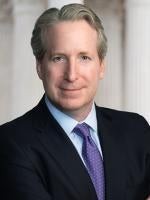The U.S. Court of Appeals for the Fifth Circuit ruled on two cases involving the federal Anti-Kickback Statute in June, providing a new look at the way in which courts may interpret it.
The cases, United States v. Cooper and United States v. Hamilton, came out differently – one ruling for the defendant, the other against – on separate aspects of the statute.
The federal Anti-Kickback Statute, 42 U.S.C. Section 1320a-7b(b), criminalizes the knowing and willful payment of “remunerations” (such as kickbacks, bribes, or rebates) to induce or reward patient referrals or the generation of business involving items or services that are paid for by a federal healthcare program. Remunerations can include anything of value and take many forms, including cash, expensive dinners, free rent, waived co-pays, or excessive compensation.
The Anti-Kickback Statute covers both those who offer to pay remunerations as well as those who receive or solicit them. Penalties may include substantial fines, jail, and exclusion from participation in federal healthcare programs.
The purpose of the Anti-Kickback Statute is to ensure healthcare providers do not make patient treatment decisions based on financial incentives rather than the actual needs of the patient. Kickback payments can result in improper referrals, administration of unnecessary medical services, and increased healthcare costs overall.
Cooper and the concept of “self-referrals”
In February 2016, the United States indicted John Cooper for allegedly using his marketing company, CMGRX, to pay individual beneficiaries of TRICARE, a federal healthcare program, $250 each to sign up for certain creams and vitamins. Once an individual agreed to the offer, CMGRX sent prefilled prescription forms to doctors along with payment for each prescription signed, TRICARE paid pharmacies for the creams and vitamins, and the pharmacies provided a portion of the proceeds to CMGRX.
In July 2020, a federal jury in the U.S. District Court for the Northern District of Texas convicted Cooper of one count of conspiracy to commit healthcare fraud, one count of receipt of illegal kickbacks from a pharmacy, and six counts of payment of illegal kickbacks to TRICARE beneficiaries in violation of the Anti-Kickback Statute. The jury was instructed on the evidence required to violate a certain subsection of the statute, 42 U.S.C. Section 1320a-7b(b)(2)(A) (“subsection (2)(A)”), which prohibits payments to induce referrals, but did not receive instructions on other provisions of the Anti-Kickback Statute.
On appeal to the U.S. Court of Appeals for the Fifth Circuit, Cooper challenged his convictions for paying illegal kickbacks to TRICARE beneficiaries, arguing that the evidence was insufficient to show that he had paid to induce referrals under subsection (2)(A) because the beneficiaries only requested prescriptions for their own use. Cooper contended that without evidence that the beneficiaries referred a third party, he could not be liable for inducing referrals under Section 1320a-7b(b)(2)(A). In response, the government countered that Cooper’s payments induced “self-referrals” by the beneficiaries, and thus satisfied the letter of the law.
The Fifth Circuit – in a split decision – agreed with Cooper, holding that the plain text of subsection(2)(A) unambiguously did not include self-referrals because it distinguished between the “person” being paid and the “individual” who is referred. The court reasoned that if a self-referral qualified as a referral under subsection (2)(A), it would duplicate subsection (2)(B), which criminalizes inducing someone to directly “purchase” or “order” a substance. According to the court, Cooper may have violated (2)(B) by paying individuals to order drugs for themselves, but did not violate (2)(A).
Judge James L. Dennis, in his concurrence, wrote that he would have found that subsection (2)(A) extended liability to those who pay to induce self-referrals. However, he recognized that even if subsection (2)(A) criminalized self-referrals, it does so only for referrals to another person.
The court's decision in Cooper suggests the government may reduce its use of subsection (2)(A) to charge inducement of self-referrals, although it is unclear whether other circuits will adopt the Fifth Circuit’s reading of Anti-Kickback Statute. For Cooper, his near-20 year sentence will now be redetermined on remand after the Fifth Circuit’s reversal of his convictions for six counts of paying illegal kickbacks.
Masking kickbacks as co-pays in Hamilton
In Hamilton, the Fifth Circuit addressed when copayments may qualify as kickbacks. The government alleged that Dr. Yolanda Hamilton, who owned and operated a clinic, required home healthcare agencies (HHAs) to pay her a $60 fee in exchange for certification of patients for home healthcare services. She was convicted of conspiracy to solicit kickbacks, conspiracy to commit healthcare fraud, and two counts of false statement relating to healthcare matters by a jury in the U.S. District Court for the Southern District of Texas in 2020.
On appeal, Hamilton did not deny the home healthcare certifications she issued were contingent on the $60 payment by the HHAs to the clinic. However, she argued the $60 fee was a legitimate copay allowed under Medicare regulations. In response, the government asserted the fee was an illegal kickback disguised as a copay, akin to a bribe that the HHAs had to pay in order to receive Hamilton’s certification.
The Fifth Circuit affirmed Hamilton’s conviction. Although the court recognized there was evidence from which the jury could have decided the $60 fee was, in fact, a legitimate copay, it ultimately agreed with the government that the evidence was sufficient to demonstrate the $60 fee was a kickback. The court found the jury could reasonably conclude the fee was an illegal kickback rather than a legitimate copay because (a) Hamilton had discussed the fee with the HHA owners, (b) patients rarely paid the fee, (c) HHAs commonly paid the fee, and (d) the fee was uniform regardless of the services rendered.
Hamilton’s conviction resulted in a sentence of 60 months’ imprisonment, a $9.5 million restitution order, and exclusion for 35 years from participating in federal healthcare programs.
In the end, the Hamilton case is another reminder that remuneration under the Anti-Kickback Statute can come in many different shapes and sizes.





 />i
/>i

